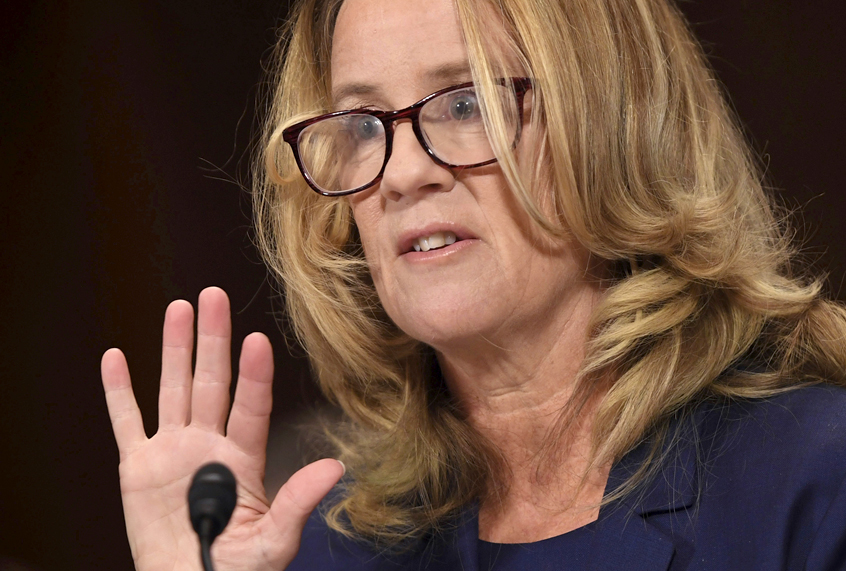Sen. Susan Collins, the Republican senator from Maine whose last-minute decision to support Brett Kavanaugh pushed the Supreme Court nominee past the finish line on Saturday, told CNN’s Dana Bash on Sunday that she did not believe the sexual misconduct accusations made against the judge by California research psychologist Christine Blasey Ford.
After mentioning that she found Ford’s testimony to be “heart-wrenching, painful, compelling” and adding that “I believe that she believes what she testified to,” Collins made it clear that she also thought Ford was wrong about Kavanaugh having sexually assaulted her when they were both in high school.
“But we also had a case where Judge Kavanaugh came forward and said ‘I’m 100 percent certain that this did not happen,'” Collins told CNN. “So here you have two people, who are each 100 percent certain of what they’re saying, under pain of perjury, so then I had to look at the other evidence, and was there corroborating evidence, and that’s why I pushed hard for the FBI to do a supplemental background investigation.”
She added, “I do not believe that Brett Kavanaugh was her assailant. So I do believe she was assaulted. I don’t know by whom. And I’m not certain when. But I do not believe that he was the assailant.”
READ MORE: Beto O’Rourke & Martin O’Malley: the dark horse ticket that could beat Trump in 2020
Earlier in the interview, Collins admitted that she had had doubts about confirming Kavanaugh during the hearings on Thursday, but that she was ultimately persuaded by Kavanaugh’s own testimony.
“I was certainly undecided and, after hearing Christine Ford’s very compelling and painful testimony, I thought ‘Oh my goodness, he perhaps needs to withdraw!'” Collins recalled to Bash. “But then when he came back with such a forceful denial, and the anger and anguish that he showed, and then the lack of corroboration led me back to the fundamental issues that are fundamental to our legal system: Of presumption of innocence and fairness.”
In her speech announcing that she would support Kavanaugh, Collins explained that “certain fundamentally legal principles about due process, the presumption of innocence, and fairness do bear on my thinking, and I cannot abandon them. In evaluating any given claim of misconduct we will be ill served in the long republic if we abandon the presumption of innocence and fairness tempting though it may be.”
She added, “We must always remember that it is when passions are most inflamed that fairness is most in jeopardy. The presumption of innocence is relevant to the advice and consent function when an accusation departs from a nominees otherwise exemplary record. I worry that departing from this presumption could a lead to a lack of public faith in the judiciary and would be hugely damaging to the confirmation process moving forward.”
Collins also singled out the accusation that Kavanaugh had participated in gang rapes, which was made by a woman named Julie Swetnick represented by lawyer Michael Avenatti, as an example of how the process had run amok.
“This outlandish allegation was put forth without any credible supporting evidence and simply parroted public statements of others. That’s such an allegation can find its way into the Supreme Court confirmation process is a stark reminder about why the presumption of innocence is so ingrained in our a American consciousness,” Collins declared.


